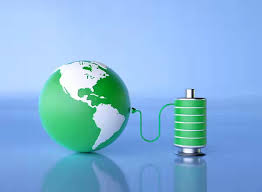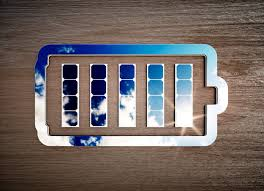"Made in Europe" is not easy to achieve
During the 2021 EU Industry Day event, European Commission President von der Leyen once said that “the most innovative, durable and clean electric vehicle batteries will soon be ‘Made in Europe’”. However, analysis points out that achieving this goal will not be easy.

Some foreign media and research institutions are not optimistic about Europe's battery production capacity. The Financial Times quoted data from Benchmark, a British battery supply chain research organization, as saying that there are 10 local battery factories in Europe that have been put into production, and 26 more factories are planned to be built. If all are put into production, theoretically it may be able to meet demand. However, actual production is bound to be "much lower" and it will take many years to increase production. Some battery companies may also be eliminated.
Announced subsidies may also be subject to change. The German Federal Ministry of Economic Affairs announced not long ago that due to budget constraints, Germany has decided to cancel the electric vehicle subsidy plan in advance. The subsidy program was originally scheduled to last until the end of 2024. Germany’s Rheinische Post quoted statements from relevant German companies and industry associations as saying that the end of subsidies will seriously damage the competitiveness of manufacturers in the industry chain.

The New York Times analyzed that Europe has some advantages, such as the strong market demand for electric vehicles. According to data from Schmidt Automotive Research, about 14% of new cars sold in Europe in the first three months of 2023 will be electric vehicles, twice the rate in the United States. "But if Europe does not act quickly to help the battery industry, it will not be able to compete with the North American market." In the competition, we will really lose motivation."
There are a series of uncertainties in the development prospects of Europe's local battery industry.
The contradictions between the United States and Europe surrounding the development and governance of the new energy industry are now becoming prominent. The European Commission and the U.S. Department of Energy announced in 2022 that they would support cooperation between the European Battery Alliance and the U.S. Lithium Bridge Alliance, but they were unable to substantively resolve issues such as key raw materials, equipment, market share competition and industrial chain agglomeration effects in the battery industry. The impact of U.S. and European industrial and policy cooperation and competition on the European battery industry requires further observation.

In recent years, Europe has not yet explored an effective path in balancing the relationship between technology industry development and regulation. There are constant arguments that Europe's "strong regulatory" attitude may increase business costs, reduce efficiency, and even "stifle innovation." Take the Net Zero Industry Act as an example, which requires that at least 40% of European clean technologies be produced locally by 2030. However, the European battery industry generally complains about high production costs but insufficient financial subsidies, and the production capacity and sales of local products. Price competitiveness will be limited.
"In view of a series of difficulties and challenges, the prospects for the EU to develop its local battery industry in the future are not optimistic." Some experts said, "Currently, the EU funds 'important projects of common interest in Europe' in batteries and related fields, which is intensifying disputes between member states." The subsidy competition may give companies in member countries with relatively strong financial strength, such as Germany and France, access to unequal advantages. This will not only shake the foundation of the European single market, but also aggravate the imbalance of economic development among countries and affect the formation of synergy among industries."
Supplier
Graphite-crop corporate HQ, founded on October 17, 2008, is a high-tech enterprise committed to the research and development, production, processing, sales and technical services of lithium ion battery anode materials. After more than 10 years of development, the company has gradually developed into a diversified product structure with natural graphite, artificial graphite, composite graphite, intermediate phase and other negative materials (silicon carbon materials, etc.). The products are widely used in high-end lithium ion digital, power and energy storage batteries.If you are looking for graphite powder for battery li-ion anode, click on the needed products and send us an inquiry:sales@graphite-corp.com







